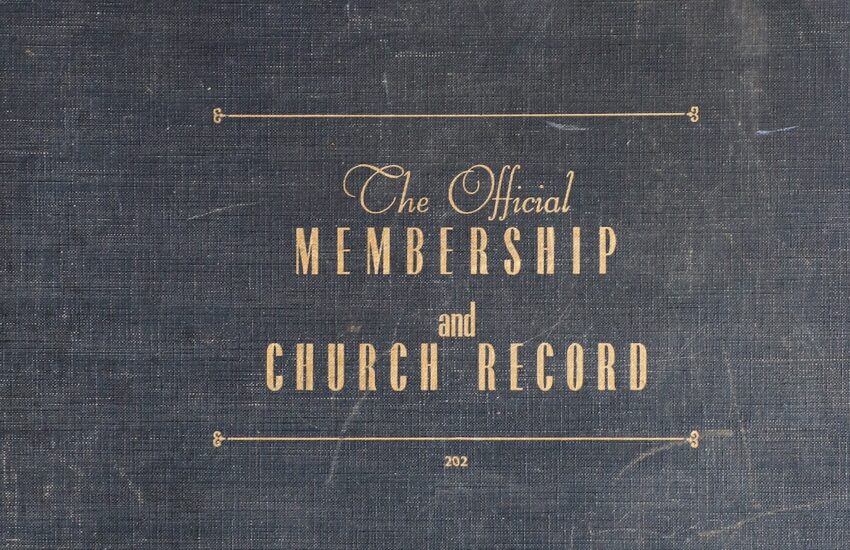To stupid or not to stupid
Here’s more on biblical interpretation.
Let me get right to the point— there is a word that I’ve grown to find rather glorious: the word, stupid. Yes, I said it, and now that it’s out there, I feel a certain peace. Now, before you spill your coffee or faint dramatically on the nearest couch, let’s get our definitions straight. In plain English, “stupid” means lacking intelligence, good judgment, or common sense. In that sense, it’s not a personal attack; it’s just a fair critique of a questionable life choice. Calling someone “stupid” as a blanket statement is, of course, impolite, generally unhelpful and outright sinful.
But I say to you that everyone who is angry with his brother will be liable to judgment; whoever insults his brother will be liable to the council; and whoever says, ‘You fool!’ will be liable to the hell of fire.
Matthew 5:22
However, pointing out that someone has acted stupidly in a specific circumstance isn’t the same thing. That’s just calling a spade a spade, and there’s no harm in shining a light on foolishness when it rears its head. After all, actions have consequences, and sometimes those consequences are a well-deserved label.
Why am I bringing this up? Well, because biblical hermeneutics—the art and science of interpreting Scripture—is essentially the study of how not to be stupid with God’s Word. Accurate biblical interpretation requires intelligence, good judgment, and common sense – everything stupid is not. And no, these virtues aren’t reserved for the intellectual elite or the spiritually highfalutin (pompous). They’re accessible to anyone willing to engage their God-given faculties.
The word “intelligence” here refers to the ability to learn, understand, and execute. It’s not synonymous with literacy or a string of degrees from prestigious institutions. You can be illiterate and still be among the sharper crayons in the box. Wisdom can easily reside in the illiterate because lacking in literacy does not mean that one is lacking in intelligence. Conversely, you can have more degrees than a thermometer and still be dumber than a box of rocks when it comes to spiritual matters. Add to this the dilemma of modern education that often tries to bypass genuine intelligence, substituting it with rote memorization or, worse, indoctrination. As Mark Dever aptly reminds us, we should never treat illiterate people as unintelligent. The Holy Spirit isn’t limited by our educational attainments—or lack thereof.
Intelligence, good judgment and common sense are terms everyone uses, but they often come with their own set of rules. The only standard that truly matters, however, is the biblical one. Since the Bible isn’t a stupid book, wasn’t written by stupid people, and the breath of God is far from stupid, and it wasn’t meant for stupid people, it’s probably a good idea to leave our own stupidity at the door before we start reading it.
Ashes for Wisdom
When we set aside the foolishness of our flesh, God promises to give us wisdom without favoritism (James 3:17). And when it comes to interpreting Scripture, there’s a fundamental principle I want to establish.
Jesus said in John 14:16-17, “And I will ask the Father, and he will give you another Helper, to be with you forever, even the Spirit of truth… You know him, for he dwells with you and will be in you.” Without the Spirit, we’re like ships without a compass—adrift and destined for shipwreck.
The Folly of Separating the Spiritual and the Physical
Now, here’s where many folks take a nosedive into the shallow pool of folly. They treat spiritual matters as ethereal, misty concepts floating somewhere above the stratosphere, entirely detached from the physical world. This is a category mistake of epic proportions.
The spiritual realm is distinct from the physical, yes, but distinction doesn’t mean separation. Consider this: God created man in His own image, a unique union of spirit and flesh, where the spiritual and the physical are meant to work together. God, who is Spirit, took on human flesh and lived among us in the person of Jesus Christ. The Holy Spirit doesn’t flout around like a cosmic cloud; He dwells within believers—the Spirit indwelling the physical. And true spirituality always finds expression in real-world actions—loving your neighbour, caring for the needy, and resisting sin. You cannot separate the spiritual from the physical; genuine faith is always lived out in tangible ways.
Biblical spirituality is a physical exercise. We can’t act outside of our bodies. When we sow seeds physically—whether that’s evangelism, acts of service, or diligent study—we reap spiritual rewards. What we do in the physical realm has spiritual consequences.
So, attempting to read the Bible “spiritually” while neglecting your mind and body is, well, stupid. Conversely, trying to dissect Scripture with cold intellectualism devoid of the Spirit is equally foolish. It’s like trying to play the piano with oven mitts—you’re missing the point entirely.
To avoid sheer stupidity in biblical interpretation, you must start with the Holy Spirit. This isn’t just an intellectual exercise—it’s spiritual business. And here’s the thing: this particular brand of stupidity doesn’t just show up in how someone interprets the text, but in how they even approach the Bible in the first place.
Since this is a spiritual matter, the Spirit of God isn’t satisfied with mere accuracy in your interpretation; He goes further. He works the ongoing miracle of effective interpretation—taking the truth from the printed page and engraving it onto your heart. Without the Spirit’s power, a purely intellectual approach to Scripture is like a cricket commentator who knows all the rules, can read the pitch, and even make solid predictions—yet he’s never actually played the game.
And at the end of the age—when the rewards are handed out not to the commentators but to the players—his commentary, no matter how technically accurate, will only highlight his own folly. No matter how many pristine exegetical commentaries he’s written, the fact remains: he was never in the game. Of such a person, Christ would say, “I never knew you” (Matthew 7:23).
Now, here’s where the wheels really come off for some folks, because they either nosedive into a cloud of hyper-spiritual fluff or get stuck in the muck of cold, dry intellectualism.
On one hand, we’ve got the super-spiritualists—those who think they can bypass all earthly concerns and float through life on nothing but vibes and visions. These are the folks who think that paying their bills or feeding their kids is somehow less “spiritual” than spending hours “listening” for the voice of God in a quiet room. They’ll pray for a loaf of bread while standing next to a bakery, but God forbid they actually walk in and buy some. Why do that when they can claim “spiritual bread”? It’s like trying to win a chess match by staring intensely at the pieces, hoping they’ll move themselves.
Then, on the other hand, you’ve got the Bible scholars who are so buried in their Greek lexicons and historical-critical methods that they might as well be dissecting a frog in biology class. They can parse the Hebrew word for “sheep” six ways but have never actually been a sheep in God’s flock. These are the people who could give a TED Talk on the nuances of Pauline theology but wouldn’t recognize an opportunity to love their neighbor if it knocked on their door holding a casserole. It’s like analyzing the sheet music of Beethoven’s Fifth Symphony and calling yourself a maestro, even though you’ve never touched a piano in your life.
Both of these approaches miss the point entirely. Being “spiritual” without getting your hands dirty in the real world is like trying to drive a car without ever starting the engine. And trying to intellectually dissect the Bible without the Holy Spirit’s guidance is like showing up to a sword fight armed with a butter knife—you’re woefully underprepared for what’s coming your way.
A Love for the Technicalities
This brings us to hermeneutics. The word comes from the Greek “hermēneus,” connected to Hermes, the mythical messenger of the gods. But don’t worry; that doesn’t mean you need winged sandals to understand Scripture. Hermeneutics is about uncovering the intended meaning of a text and applying it appropriately. And we’ve already established that you can’t do that biblically without the Holy Spirit.
Christians ought to develop a love for the technicalities—not as an end in themselves but as tools to dig deeper into God’s Word. Think of it like following a recipe. Sure, you could throw random ingredients into a pot and hope for the best, but don’t be surprised if you end up with a culinary abomination. Or imagine building IKEA furniture without the instructions. Unless you’re a fan of wobbly bookshelves and leftover screws, that’s a bad idea.
In all these things, we engage our minds to benefit the outcome. If your child says, “I don’t want to go to school. I’ll just trust that God will put words in my mouth when I need them,” your biblical response should be, “Don’t be stupid.” You can’t separate the spiritual from the physical, nor can you divorce God’s sovereignty from human responsibility.
You’re Accountable
Here’s the kicker: Jesus holds you responsible for how you handle Scripture. He repeatedly confronted the religious leaders with phrases like, “Have you not read?” (Matthew 12:3, 5; 19:4; 22:31). He expected them—and us—to read and understand God’s Word accurately.
In the Sermon on the Mount, Jesus says, “You have heard that it was said… but I say to you…” (Matthew 5). He wasn’t contradicting Scripture; He was correcting their flawed interpretations. Those whose business it was to interpret and teach were not doing it accurately.
You’re responsible for your understanding. Clinging to beliefs that feel good but aren’t grounded in Scripture is dangerous. The Pharisees did that, and Jesus didn’t mince words in calling them out.
Let’s take a quick stroll through the garden of theological nonsense, starting with the Prosperity Gospel, where faith is treated like a lottery ticket—just believe hard enough, and God will shower you with health, wealth, and everything short of a Ferrari. Then we have the Poverty Gospel, where being broke is treated as a shortcut to sainthood, as if holiness is somehow tied to the size of your empty wallet. Next up is Wishy-Washy Theology, where doctrine is as flexible as Play-Doh, molded to fit the cultural flavor of the month. And of course, there’s Genie Jesus, the cosmic vending machine—insert prayer, receive blessing. Finally, we arrive at the masterpiece of foolishness: Legalism, where people obsess over man-made rules while completely ignoring the weightier matters of justice, mercy, and faithfulness. If we’re being honest, legalism should be the official definition of stupidity.
Biblical hermeneutics are the tools that allow you to plow the fertile soil of Scripture and unearth its treasures. They’re not barriers to understanding; they’re gateways.
Conclusion
So, what’s the takeaway here? Don’t be stupid with Scripture. Engage your mind, submit to the Holy Spirit, and embrace the responsibility of accurate interpretation. Remember, at the end of the age, it won’t matter how many Bible studies you attended or how many theological terms you can drop into casual conversations. What will matter is whether you built your house on the rock of God’s Word or the shifting sands of human folly.
Let’s not be like the cricket commentator who’s never played the game—full of opinions but lacking experience. Instead, let’s step onto the field, wield the bat, and play the game as it was meant to be played. After all, faith without works is dead (James 2:17), and interpretation without application is pointless.
So roll up your sleeves, dust off that Bible, and dig in. The Holy Spirit is your guide, and the journey is worth every step. Don’t settle for spiritual stupidity when divine wisdom is at your fingertips.





